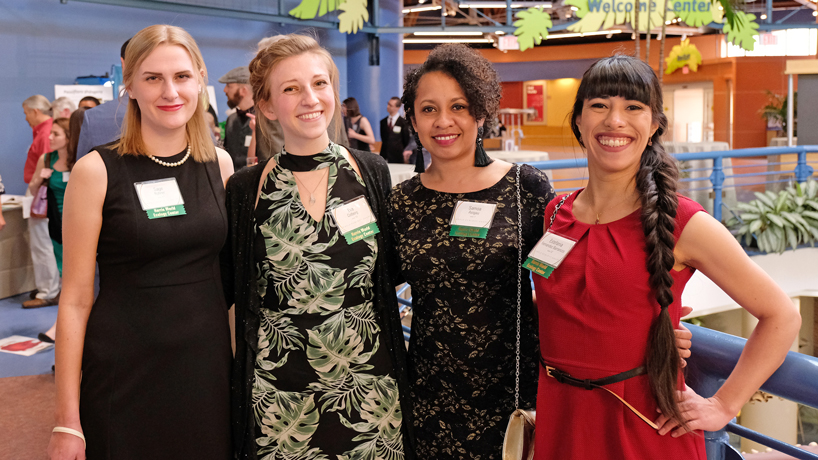
UMSL’s Whitney R. Harris World Ecology Center has helped support graduate and undergraduate students such as (from left) Sage Rohrer, Eva Colberg, Samoa Asigau and Estefania Fernandez Barrancos, seen at last year’s annual gala at the Saint Louis Zoo. (Photo by August Jennewein)
The University of Missouri–St. Louis has received attention along with some of the nation’s leading universities as a place where students can find full funding for PhDs in environmental conservation thanks to the support of the Whitney R. Harris World Ecology Center.
ProFellow, a leading source for information about professional and academic fellowships, included UMSL on a list with Boston University; Columbia University; University of California, Irvine; University of California, Los Angeles; University of California, San Diego; University of Pennsylvania; and Yale University.
The site noted that the “Christensen Fund Graduate Fellowship Program in Plant Conservation provides recruitment and repatriation airfares, stipend, tuition fee waiver and the opportunity to apply for competitive research funds.”
The Harris Center similarly supports a fellowship in animal conservation in partnership with the Saint Louis Zoo.
“UMSL’s Whitney R. Harris World Ecology Center is proud to be able to provide financial support for students training to have an impact on global conservation of plants and animals,” said Patricia Parker, the E. Desmond Lee Professor of Zoological Studies and interim director of the Harris Center. “This work becomes more important and urgent all the time.”
The Harris Center has helped support more than 275 master’s and PhD graduates from 38 countries since it began as the International Center for Tropical Ecology in 1990. Those students have returned to work in more than 30 countries in academic, governmental and nongovernmental positions connected to ecology and biodiversity conservation.
They continue to have a significant impact working to improve the health of the environment around the globe.














